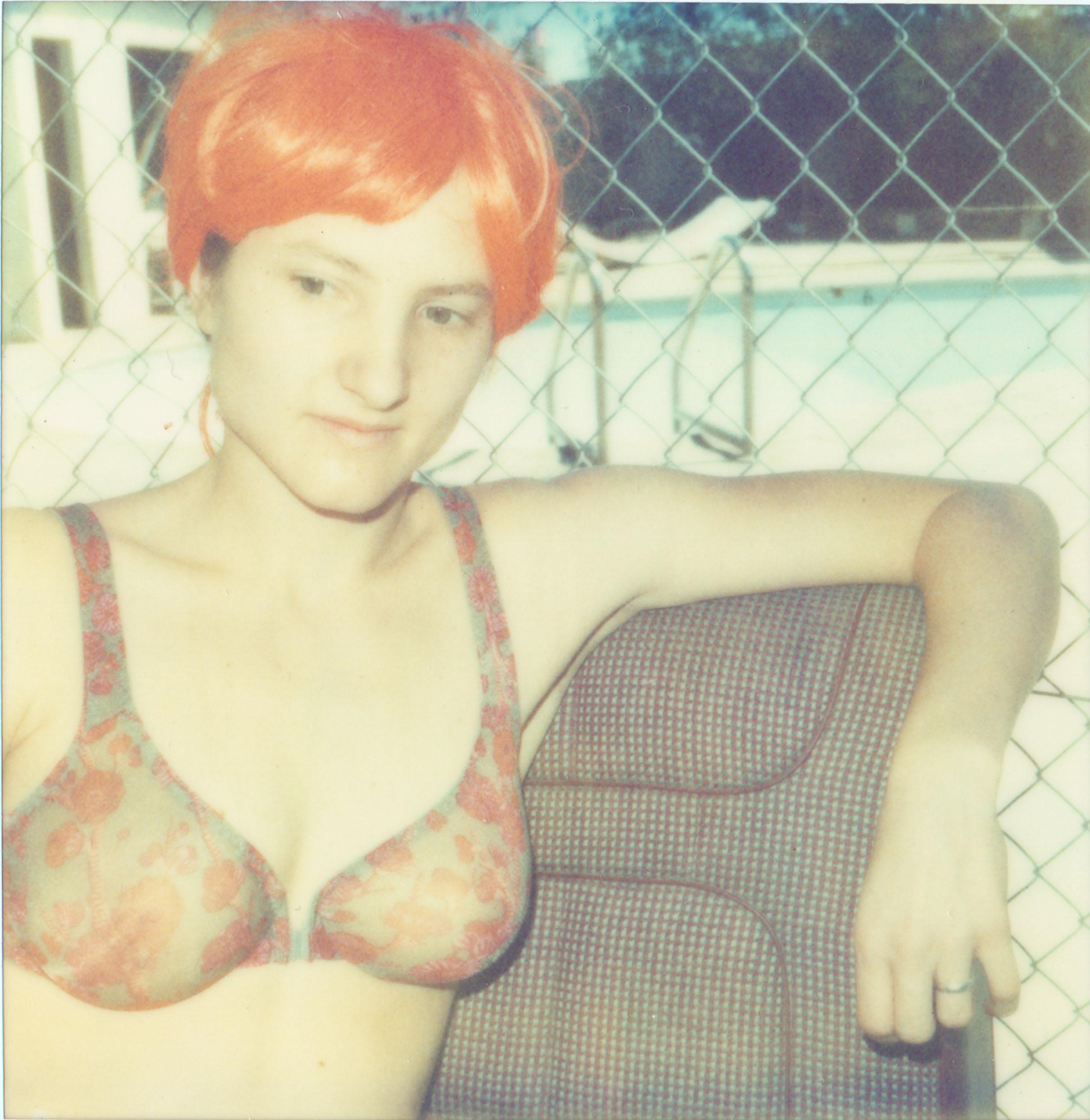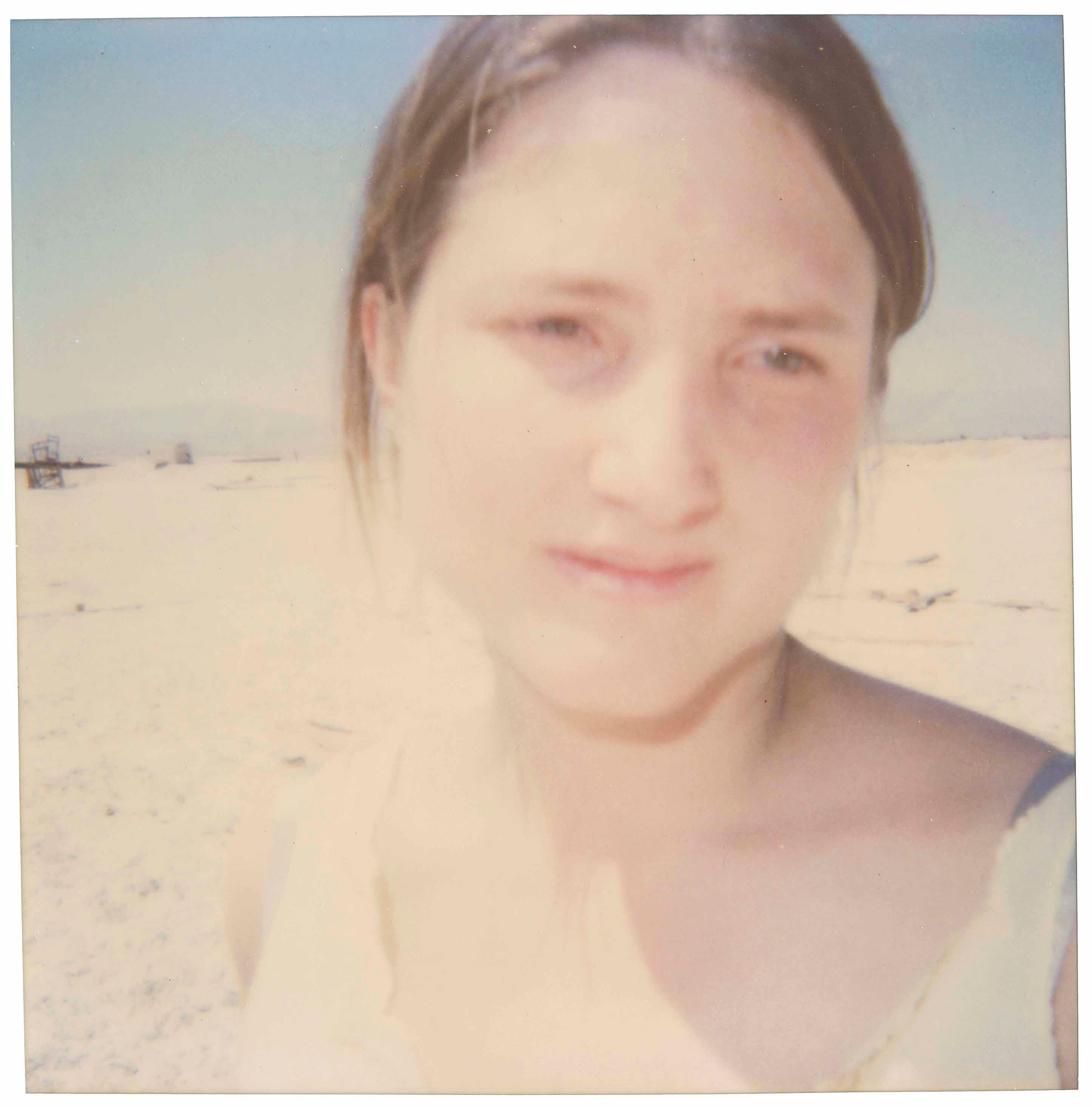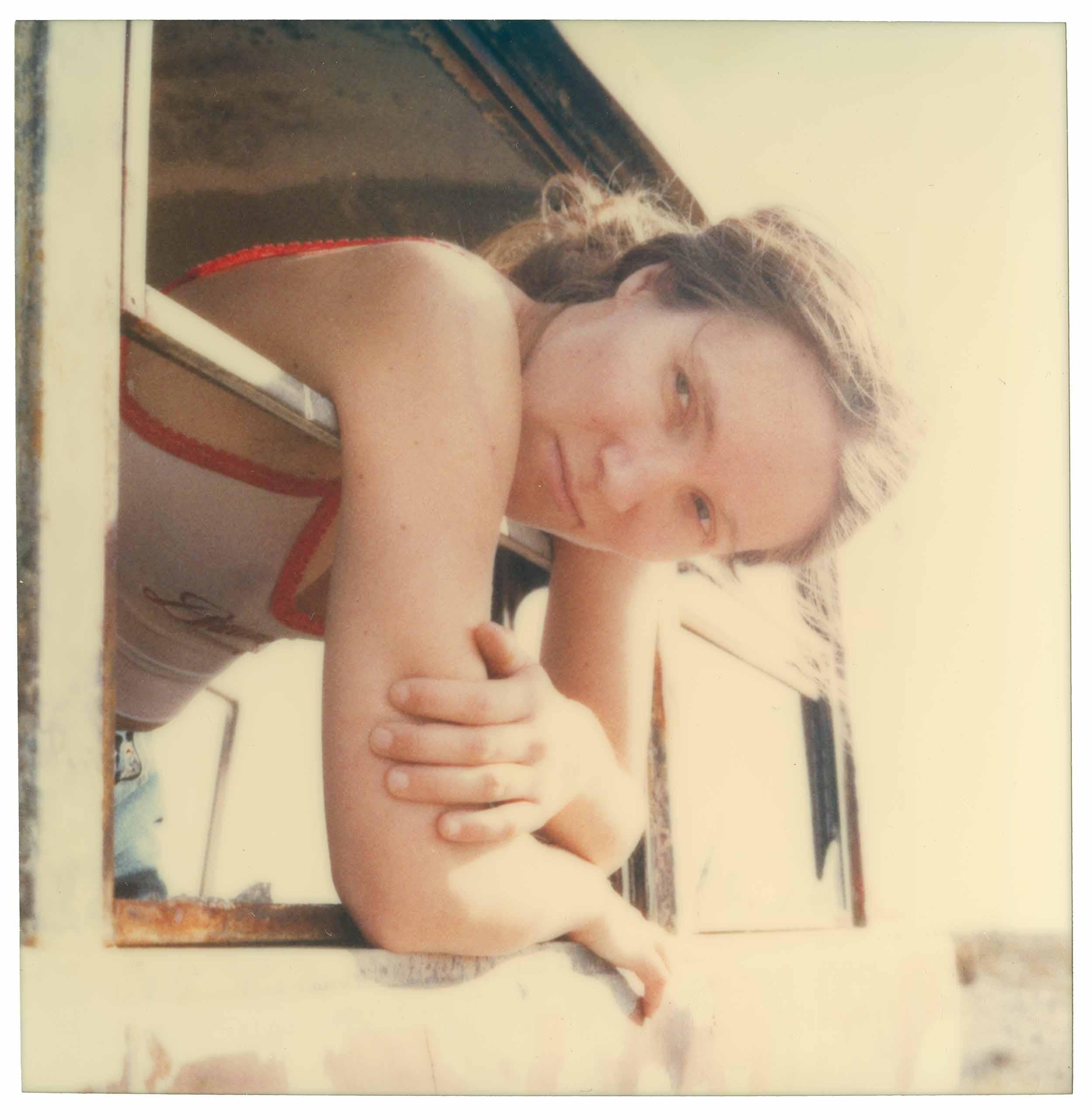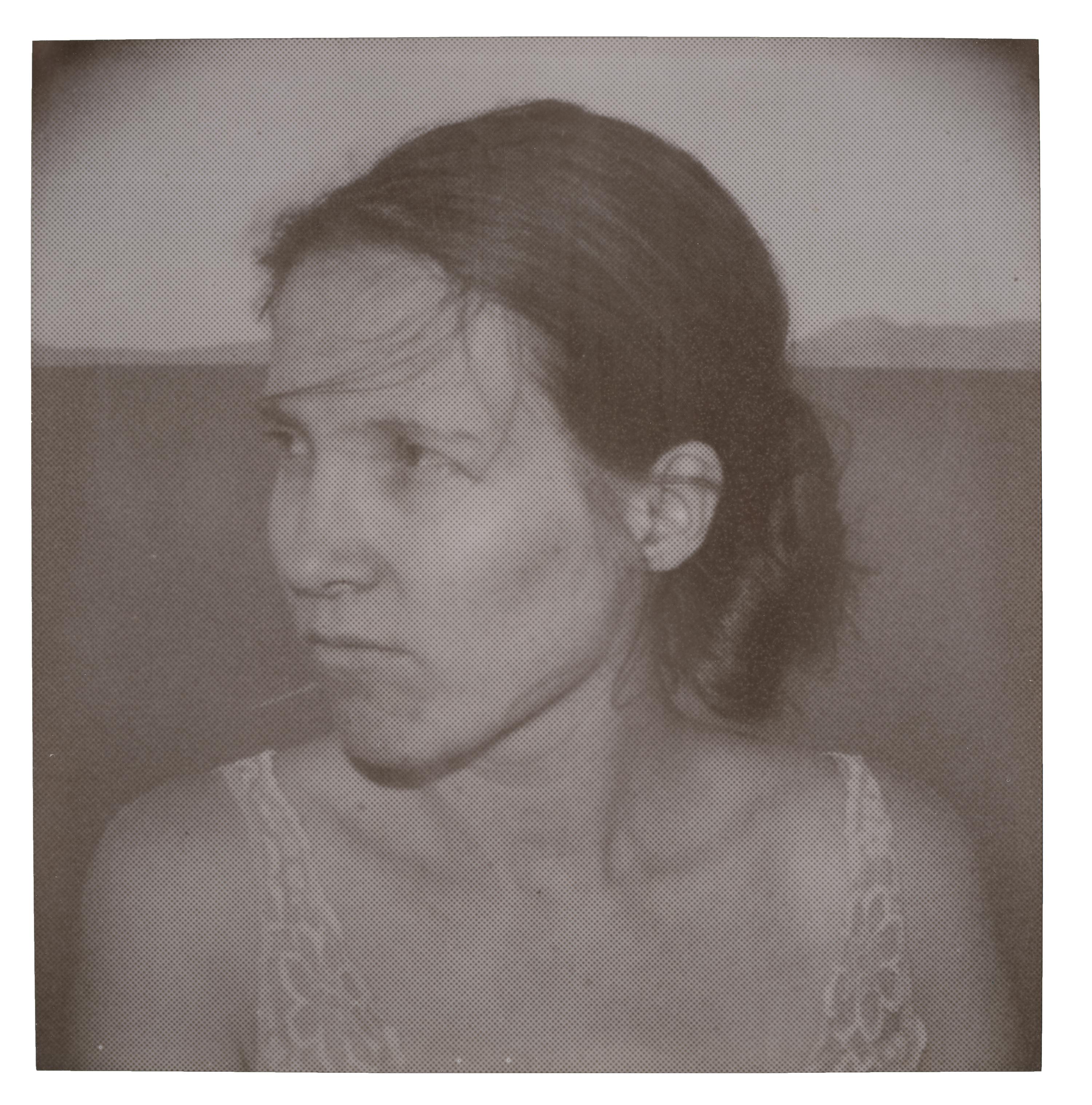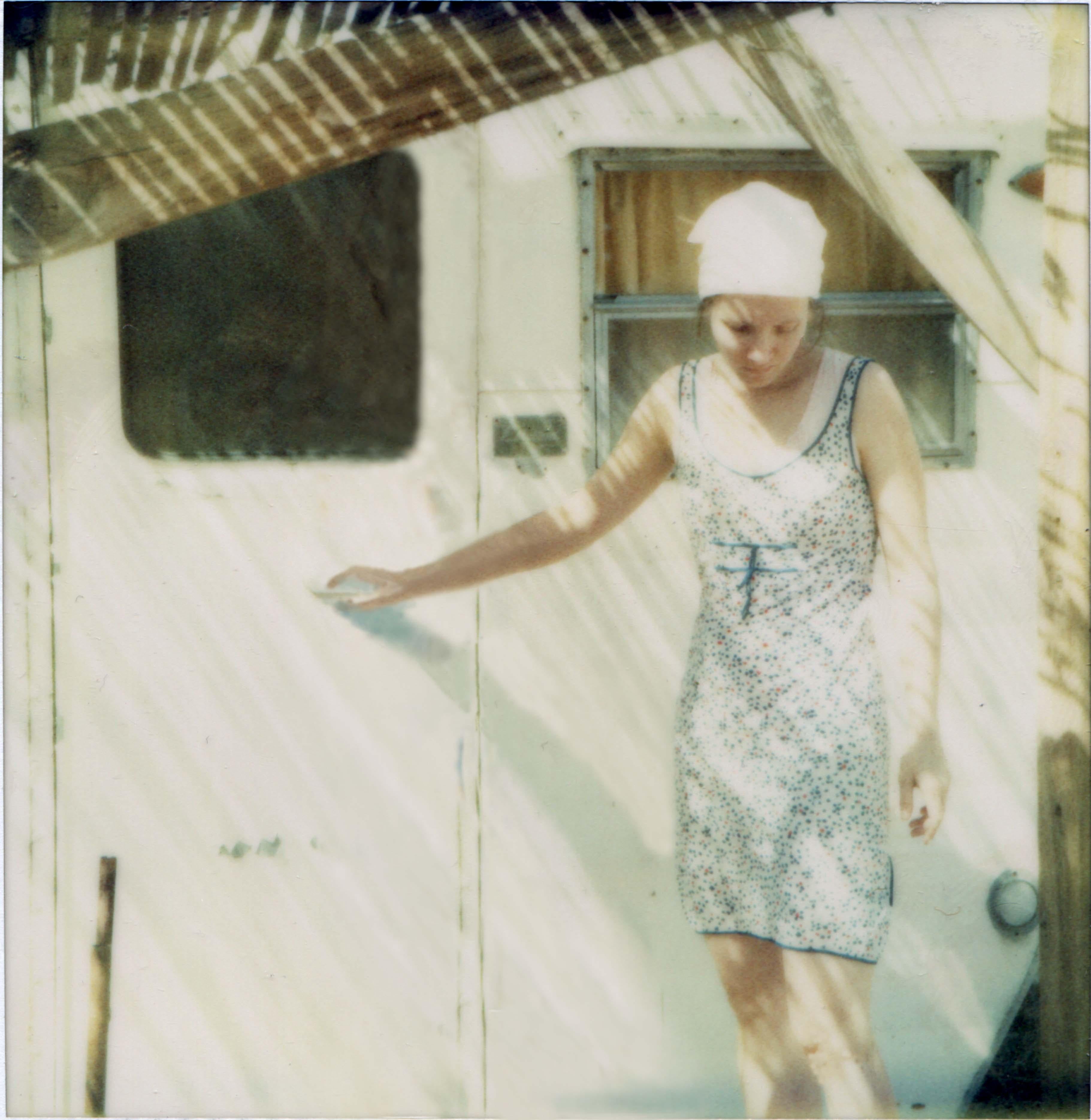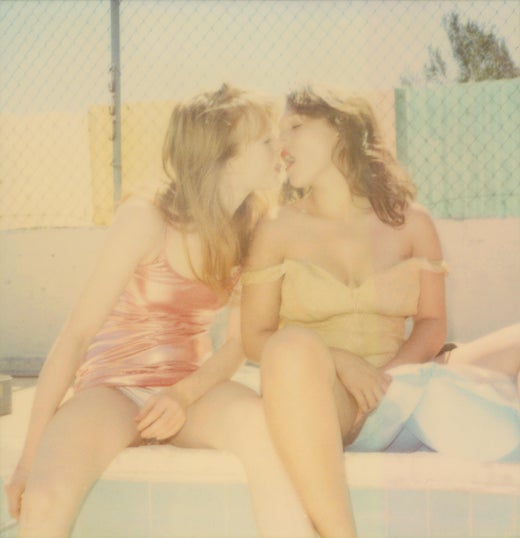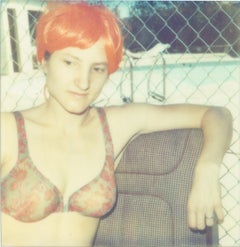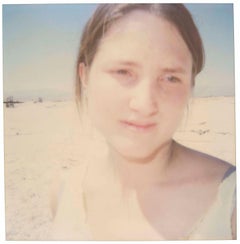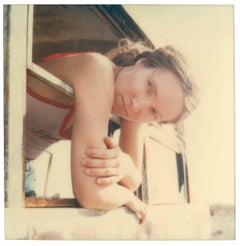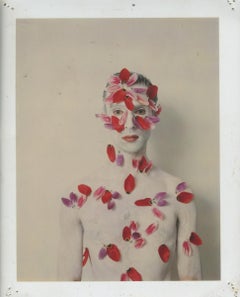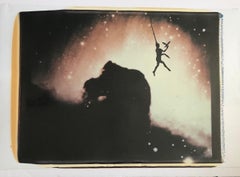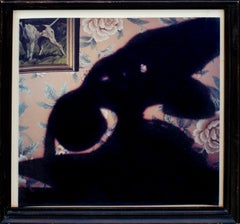Items Similar to Stranger than Paradise II - Proof before Printing - Polaroid, Contemporary
Want more images or videos?
Request additional images or videos from the seller
1 of 11
Stefanie SchneiderStranger than Paradise II - Proof before Printing - Polaroid, Contemporary2005
2005
$1,064.23
£798.18
€900
CA$1,490.05
A$1,642.44
CHF 848.66
MX$19,634.26
NOK 10,676.12
SEK 10,034.03
DKK 6,856.65
About the Item
Stranger than Paradise II -
Proof b4 Printing / 2005, 128x125cm
analog C-Print, hand-printed by the artist, based on the Polaroid, signed on front.
unmounted, untrimmed edges / raw print
published in: STRANGER THAN PARADISE published by Hatje Cantz Verlag, 2006 - Back cover (monograph)
What exactly is a proof before printing?
The proofs are part of the printing process. They are usually the few last color trials before printing the edition. They are usually not perfectly color corrected yet. Sometimes a proof might be close in color but we still have to re-print to bring everything together. Proofs are by definition imperfect and part of the natural evolution of a print. Sometimes there is no white border or a kink. A proof is a proof of one step on the way to making a print edition.They are by definition, imperfect. Wabi Sabi.
Stefanie Schneider received her MFA in Communication Design at the Folkwang Schule Essen, Germany. Her work has been shown at the Museum for Photography, Braunschweig, Museum für Kommunikation, Berlin, the Institut für Neue Medien, Frankfurt, the Nassauischer Kunstverein, Wiesbaden, Kunstverein Bielefeld, Museum für Moderne Kunst Passau, Les Rencontres d'Arles, Foto -Triennale Esslingen.
“It was Stefanie Schneider, who inspired me to start the company THE IMPOSSIBLE PROJECT after seeing her work, which seems to achieve the possible from the impossible, creating the finest of art out of the most basic of mediums and materials. Indeed, after that one day, I was so impressed with her photography that I realized Polaroid film could not be allowed to disappear. Being at the precise moment in time where the world was about to lose Polaroid, I seized the moment and have put all my efforts and passion into saving Polaroid film. For that, I thank Stefanie Schneider almost exclusively, who played a bigger role than anyone in saving this American symbol of photography.”
–Florian Kaps, March 8th 2010 (“Doc” Dr. Florian Kaps, founder of “The Impossible Project”)
The Emotional Landscape of Stefanie Schneider: An Exposé on Her Vision
To understand Stefanie Schneider’s work is to step into a world where time is neither linear nor predictable. It is an emotional landscape, not confined to the fleeting moments we call “present,” but instead, an intersection of memory, atmosphere, and raw human vulnerability. She doesn’t just photograph people—she captures their essence, their ghosts, their fleeting whispers. The ephemeral nature of her Polaroid medium mirrors the fragility of the human condition.
Her pieces breathe life into memory itself, using the decay of film as a metaphor for time’s insidious erosion of our experiences. It’s not the pristine moments we cherish that Schneider seeks, but the moments after—the ones where the edges fray, where the light bends differently, where something unexpected emerges from the static.
In The Last Picture Show, her film project that never fully saw the light of day in the way it deserved, she made the unspoken visible, threading stories of individuals, places, and times into one tangible collection of human moments. It was a journey, a slow unfolding of the interstitial spaces between what we see and what we feel.
Stefanie Schneider’s art, then, is not about beauty for beauty’s sake—it is about the pursuit of the raw, the honest, the unsanitized version of our stories. It is an exploration of what remains when everything else is stripped away, from people to places to even our own fleeting memories. Her work doesn’t adorn the walls to impress—it penetrates, it leaves an imprint, as much on the viewer as it does on the medium itself.
The Chemical Mutation of Memory: A Personal Statement
Schneider’s work speaks to a much deeper exploration of humanity’s struggle with imperfection. In a world obsessed with perfection, Schneider finds the unpredictability of expired film, the way light spills over the chemical mutations of time, to be her most honest tool. Every image she creates is a reaction, a moment of chaos where she has placed trust in the unseen, in the process of the film’s aging. These chemical reactions mirror the very way we remember or misremember; they speak to the fractured nature of memory and the elusive quality of identity.
Her photographs take us into uncertain terrain, where color morphs, textures run wild, and light reveals fragments of meaning that we cannot easily grasp. She is not a photographer; she is a storyteller of things forgotten, things unseen. Her subjects—whether it’s a desert or a human being caught in a silent reverie—are portals into a more profound truth, a truth not easily conveyed by words, but only through the unfiltered, unapologetic lens of time itself.
In a way, Schneider’s work mirrors life’s contradictions: beauty in chaos, clarity in ambiguity, peace in disarray. It’s not the immaculate scenes we expect from a polished, modern art world; it is the imperfections that whisper the loudest, the fractures that make us feel most alive. She uses Polaroid film, once a symbol of instant gratification, but instead of preserving perfect moments, she uses it to express something much deeper: the beautiful, inexplicable mess that life truly is.
Honesty in the Frame: Embracing Vulnerability
Stefanie Schneider does not seek approval from her audience. She seeks to create authentic moments of connection that resonate with the soul. To look at one of her works is to witness a moment of unguarded truth—a fleeting moment where everything is left exposed, raw, imperfect, and human. It’s the vulnerability of being caught in the midst of life’s transitions, the uncertainty of being human, the acceptance that we can’t preserve everything—yet we try.
In every image, there is an embrace of impermanence, ephemerality, and flawed beauty. Schneider doesn’t manipulate the world to fit her vision; she meets it in its natural state, accepting its unrepeatable, fragile nature. Her work is a meditation on what time does to us all—how we decay, how we change, and how we eventually fade. But even in this fragility, there is beauty. Because in the decay, there is a truth waiting to be unearthed.
To experience Stefanie Schneider’s work is to be reminded that we cannot control time, but we can bear witness to it. She captures not what is permanent, but what remains long after the moment has passed—the aftertaste of memory, that fleeting, magical thing that dances just out of reach.
The Unseen Reality: A Love Letter to Imperfection
In a world obsessed with clarity, Schneider’s work is a call to embrace the blurry edges. It’s an invitation to feel the mess and see the beauty in the unpredictability. She doesn’t make art for fame, recognition, or status—she makes it to speak to something deeper within us all. Something raw. Something real. Something we can’t easily explain.
Stefanie Schneider’s art is not about perfection. It’s about the truth that emerges only when we let go, when we stop trying to control and just allow the moment to be—imperfect, fleeting, and beautiful.
- Creator:Stefanie Schneider (1968, German)
- Creation Year:2005
- Dimensions:Height: 49.22 in (125 cm)Width: 48.43 in (123 cm)Depth: 0.04 in (1 mm)
- Medium:
- Movement & Style:
- Period:
- Condition:
- Gallery Location:Morongo Valley, CA
- Reference Number:1stDibs: LU652316305592
Stefanie Schneider
Stefanie Schneider received her MFA in Communication Design at the Folkwang Schule Essen, Germany. Her work has been shown at the Museum for Photography, Braunschweig, Museum für Kommunikation, Berlin, the Institut für Neue Medien, Frankfurt, the Nassauischer Kunstverein, Wiesbaden, Kunstverein Bielefeld, Museum für Moderne Kunst Passau, Les Rencontres d'Arles, Foto -Triennale Esslingen., Bombay Beach Biennale 2018, 2019.
About the Seller
4.9
Platinum Seller
Premium sellers with a 4.7+ rating and 24-hour response times
Established in 1996
1stDibs seller since 2017
1,047 sales on 1stDibs
Typical response time: 1 hour
- ShippingRetrieving quote...Shipping from: Morongo Valley, CA
- Return Policy
Authenticity Guarantee
In the unlikely event there’s an issue with an item’s authenticity, contact us within 1 year for a full refund. DetailsMoney-Back Guarantee
If your item is not as described, is damaged in transit, or does not arrive, contact us within 7 days for a full refund. Details24-Hour Cancellation
You have a 24-hour grace period in which to reconsider your purchase, with no questions asked.Vetted Professional Sellers
Our world-class sellers must adhere to strict standards for service and quality, maintaining the integrity of our listings.Price-Match Guarantee
If you find that a seller listed the same item for a lower price elsewhere, we’ll match it.Trusted Global Delivery
Our best-in-class carrier network provides specialized shipping options worldwide, including custom delivery.More From This Seller
View AllStranger than Paradise I - 21st Century, Polaroid, Contemporary, Analog
By Stefanie Schneider
Located in Morongo Valley, CA
Stranger than Paradise I (Last Picture Show) - 2005
128 x 125 cm,
Edition 4/5,
analog C-Print, hand-printed by the artist on Fuji Crystal Archive Paper,
based on a Polaroid, sign...
Category
Early 2000s Contemporary Portrait Photography
Materials
Archival Paper, Photographic Paper, C Print, Color, Polaroid
$3,300 Sale Price
40% Off
Lost (Stranger than Paradise) - 21st Century, Polaroid, Color
By Stefanie Schneider
Located in Morongo Valley, CA
Lost (Stranger than Paradise) - 1999
Edition of 10,
50x50cm.
Archival C-Print, on Archive Fuji Chrystal Paper, based on the Polaroid.
Artist inventory number: 20375.
Signature la...
Category
Early 2000s Contemporary Color Photography
Materials
Archival Paper, Photographic Paper, C Print, Color, Polaroid
Lost (Stranger than Paradise) - 21st Century, Polaroid, Color
By Stefanie Schneider
Located in Morongo Valley, CA
Lost (Stranger than Paradise) - 1999
Edition of 10,
50x50cm.
Archival C-Print, on Archive Fuji Chrystal Paper, based on the Polaroid.
Artist inventory number: 20375.
Signature la...
Category
Early 2000s Contemporary Color Photography
Materials
Archival Paper, Photographic Paper, C Print, Color, Polaroid
Maybe tomorrow (Stranger than Paradise) - 21st Century, Polaroid, Color
By Stefanie Schneider
Located in Morongo Valley, CA
Maybe tomorrow (Stranger than Paradise) - 1999
Edition of 10,
50x50cm.
Archival C-Print, on Archive Fuji Chrystal Paper, based on the Polaroid.
Artist inventory number: 20658.
Si...
Category
Early 2000s Contemporary Color Photography
Materials
Archival Paper, Photographic Paper, C Print, Color, Polaroid
Untitled (Olancha) - Stranger than Paradise - analog C-Print based on a Polaroid
By Stefanie Schneider
Located in Morongo Valley, CA
Untitled (Olancha) - 2006,
38x37cm.
Edition of 5, plus 2 Artist Proofs.
Analog C-Print, hand-printed by the artist, based on the Polaroid.
Signature label and Certificate.
Arti...
Category
Early 2000s Contemporary Portrait Photography
Materials
Archival Paper, Photographic Paper, C Print, Color, Polaroid
No more goodbyes (Stranger than Paradise) - 21st Century, Polaroid, Color
By Stefanie Schneider
Located in Morongo Valley, CA
No more goodbyes (Stranger than Paradise) - 1999
Edition of 10,
50x50cm.
Archival C-Print, on Archive Fuji Chrystal Paper, based on the Polaroid.
Artist inventory number: 851.
Si...
Category
Early 2000s Contemporary Color Photography
Materials
Archival Paper, Photographic Paper, C Print, Color, Polaroid
You May Also Like
Untitled Polaroid 23, Unique Self Portrait Photograph by Dietmar Busse
By Dietmar Busse
Located in New York, NY
Untitled Polaroid 23, Unique Self Portrait Photograph by Dietmar Busse.
2001
Signed and dated in black ink, verso
Polaroid (Unique)
5 x 4 inches, image
Contact gallery for price.
Category
Early 2000s Contemporary Photography
Materials
Polaroid
Vintage 20X24 Format Polaroid Signed Surrealist Photograph Eve Sonneman Photo
By Eve Sonneman
Located in Surfside, FL
This is from a show at Sidney Janis Gallery and is from the estate of Joan Sonnabend.
Eve Sonneman (born in Chicago on 1946) is an American photographer and artist. She did a series ...
Category
1990s Contemporary Color Photography
Materials
Color, Polaroid
Stephen Frailey Polaroid Print, 1988
Located in New York, NY
Stephen Frailey
Untitled, 1988
Polaroid print
Sight: 19 3/4 x 19 3/4 in.
Framed: 24 1/4 x 24 x 1 3/4 in.
Edition 2/3
Provenance:
Lieberman & Saul, New York
Stephen studied at the...
Category
1980s Contemporary Figurative Prints
Materials
Polaroid
THE ONE THAT GOT AWAY - Contemporary Flip-Lenticular / Vintage Photography
Located in New York, NY
Original Flip-Lenticular Print by Drew Klausner
Category
2010s Contemporary Figurative Prints
Materials
Color, Lenticular
Polaroid of Andy Warhol Painting
By Andy Warhol
Located in Beverly Hills, CA
This work is unique photographic work taken under the direction of Andy Warhol.
Provenance: Gift of the artist, to the personal collection of Ronnie Cutrone to the current owner
Wo...
Category
1980s Pop Art Color Photography
Materials
Polaroid
Untitled Polaroid 21, Unique Polaroid Self Portrait by Dietmar Busse
By Dietmar Busse
Located in New York, NY
This is a unique polaroid photograph by Dietmar Busse.
Untitled Polaroid 21
2001
Signed and numbered in black ink, verso
Polaroid (Unique)
5 x 4 inches, image
Contact gallery fo...
Category
Early 2000s Contemporary Photography
Materials
Polaroid
More Ways To Browse
Mick Rock Queen
Ozzy Osbourne
Roy Decarava
Studio 54 Sign
Bert Stern Kate Moss
Cheryl Tiegs
Douglas Kirkland Brigitte Bardot 1965
Frank Worth James Dean
Globe Sofa
Late 19th Century Cambodian Buddha
Marilyn Monroe Pink Roses
Michelle Phillips
Misty Copeland
Norman Seeff Joni Mitchell
Paul Mpagi Sepuya
Princess Diana Print
Warhol Reagan
1973 Vintage Champagne
